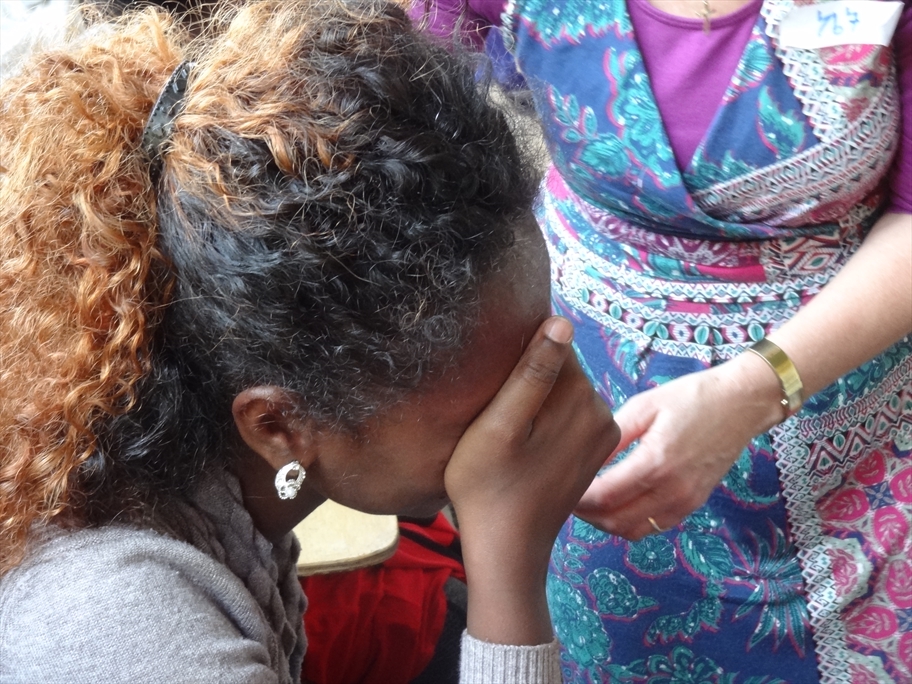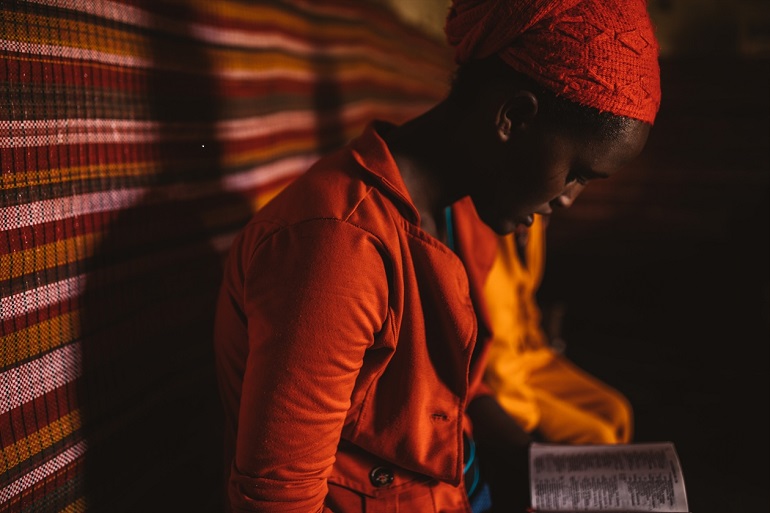Source: www.worldwatchmonitor.org
Date: March 6, 2020
 Women’s conference in Ethiopia, February 2018.
Women’s conference in Ethiopia, February 2018.
The UN Secretary-General last week called it ‘the biggest data gap in the world…what UK writer Caroline Criado Perez calls “default man” thinking: the unquestioned assumption that men are standard, and women the exception. Very often, women are not counted, and their experiences don’t count”.
And this lack of ‘counting’ quoted by Antonio Guterres, extends – not surprisingly – to some of the most ‘hidden’ abuse in the world; that of women who belong to religious minorities in countries where they face double or even triple vulnerability: for their faith, their gender and their poverty.
The UN Special Rapporteur on Freedom of Religion or Belief, Heiner Bielefeldt, noted in his August 2013 report, “Discrimination based on stereotypical roles of men and women is one of the most widespread human rights violations worldwide. It can assume cruel forms and deprives many women and girls of their rights to life, freedom and respect for human dignity.”
Now, a global charity, Open Doors International, has released its third annual report which analyses in more depth the implications of persecution experienced differently by men and women, as surveyed in its World Watch List (2020) of the top 50 countries in which it’s most difficult to live as a Christian.
In its Gender-specific Religious Persecution Report (GSRP) 2020, the charity – which works to support persecuted Christians worldwide with practical resources and encouragement – says the two most-reported persecutions used against Christian women and girls globally are sexual violence and forced marriage. Both were quoted by 84% of respondents.
Across every region of the world, sexual violence continues to be the most prevalent means of exerting power and control over Christian women and girls, as well as to punish them. Often this sexual violence is outside marriage; but sometimes a woman/girl is forced into an unwelcome marriage, at times even with the perpetrator himself. Here it is used intentionally to dishonour the Christian woman/girl and, consequently, her family and community.
While the forced marriage gives an appearance of respectability, it can also become merely a contract for sexual violence from which a woman cannot escape and in which other forms of violence and pressure are exerted.
Other key findings include:
- Women are disproportionately targeted, in many more ways than men.
- These forms of abuse seek to drive apart communities and families by shame and stigma, meaning that much of this persecution goes unreported.
- Attackers make use of damaging gender stereotypes and taboos. As a result, women who have suffered sexual violence find themselves being rejected by their husbands and communities.
Sexual violence leaves persecuted Christian women in ‘living death’, hidden and isolated
In the most difficult countries in which to live as a Christian (the top 11 of the World Watch List 2020), women and girls experience this persecution – at its peak – as a kind of ‘living death’ (sexual violence, forced marriage, house arrest), especially if they are converts from another faith such as Islam or Buddhism. These young women are physically alive, but they are hidden and isolated; hence their suffering is frequently un-reported. They are also lost to the Christian community and to the future of the Church.
This existence may then be reflected in the pressures quoted for women which came joint third in the Report: physical violence and forced divorce (quoted by 64% of the top 50 countries).
Open Doors’ Director for Women Helene Fisher says “This year’s report highlights the lifelong impact of the persecution women and girls suffer because of their faith. When women and girls are sexually assaulted, they endure untold mental and physical abuse while also sometimes trapped in “marriages” against their will. Even if they can escape the terrors of this fate, a devastating stigma and rejection will now follow them for the rest of their life. This shame is meant to leave these women alive but with no future. Sadly, even in Christian communities, rejection is practiced out of shame and a lack of knowledge. No future for them also means they won’t be part of a future family within their religious community”.
Across countries hostile to Christianity in Asia, the Middle East and North Africa and sub-Saharan Africa, sexual violence is often a crime of “opportunity” that takes advantage of the overall marginalization of the community.
‘Nima’, a tribal Christian girl, was sold into slavery when her family were displaced due to regional violence. Already vulnerable due to her faith, persecutors took the opportunity to target her and 60 other girls because of her gender. She was beaten, drugged and raped multiple times. After she was rescued, the police initially refused to register her case.
This year’s report builds on the 2019 report which showed that gender-specific persecution is widely used to repress the Christian community partly because:
- it blends in
- it is low risk to perpetrators
- it is highly effective
In Asia, Christian women are trafficked as “brides” to China because of the existing socio-economic vulnerabilities of communities; in the Arabian Peninsula, households quietly exploit Christian maids; in sub-Saharan Africa, raiding militias regularly attack women in Christian villages or abduct them for a life of sexual slavery.

For example, Nigerian teenager Leah Sharibu is the only one of 110 girls kidnapped 2 years ago to remain with her Boko Haram kidnappers – because she bravely refused to renounce her Christian faith for Islam. There are reports Leah, only 14 when she was abducted, is now married to one of the top Boko Haram commanders and that she is now a mother, although these are hard to verify.
Without an awareness of gender-specific forms of religious persecution, these methods of undermining the Church are often overlooked. If house arrest or sexual violence is not known to be a common means of targeting Christian women and girls because of their faith, then it is unlikely to be recognised as persecution. This lack of awareness is directly related to inaction and effective solutions. When not recognised as persecution, these incidents are processed as ‘normal’ within their relevant cultural context’ – leaving the Church vulnerable.
However, the Report also says that churches can play a strong role in bringing healing in the most difficult circumstances; programmes can teach leaders and members how to restore women and communities after these tragedies.

A summary of the full report, produced by Open Doors UK, ‘The Hidden Face of Persecution: the Targeted Abuse of Christian Women Worldwide’, has been welcomed by the UK Bishop of Truro, Rt Revd Philip Mounstephen, who in 2019 led a review into Christian persecution. “This is a vital piece of research and it offers an important challenge both to the global Church and to governments to advocate and act to see an end to this grave injustice.”
“The findings offer a clear call to the church worldwide,” says Henrietta Blyth, CEO of Open Doors UK. “We need to teach a truly Biblical understanding of the dignity and inherent worth of all humans – men, women and children. This prevents persecutors from dividing, and therefore weakening, communities through these gendered attacks.”
Elaine Storkey, theologian and author of Scars Across Humanity: Understanding and Overcoming Violence Against Women, commented: “The story is one of persecution, atrocities and multiple hardship, undergone because of [women’s] faith. We cannot read this report without facing the challenge it raises for us all to be more involved in contesting this injustice.”
